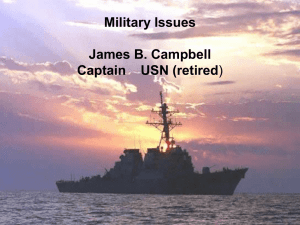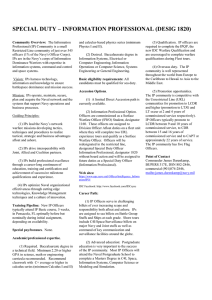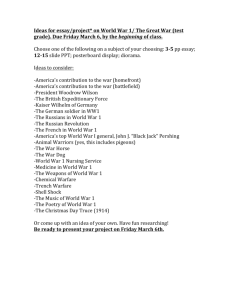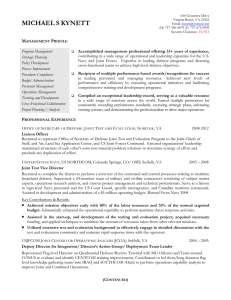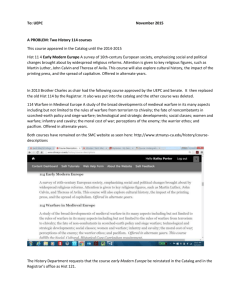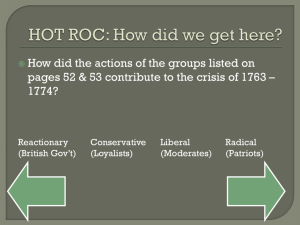SPECIAL DUTY – INFORMATION WARFARE (DESIG 1810)
advertisement
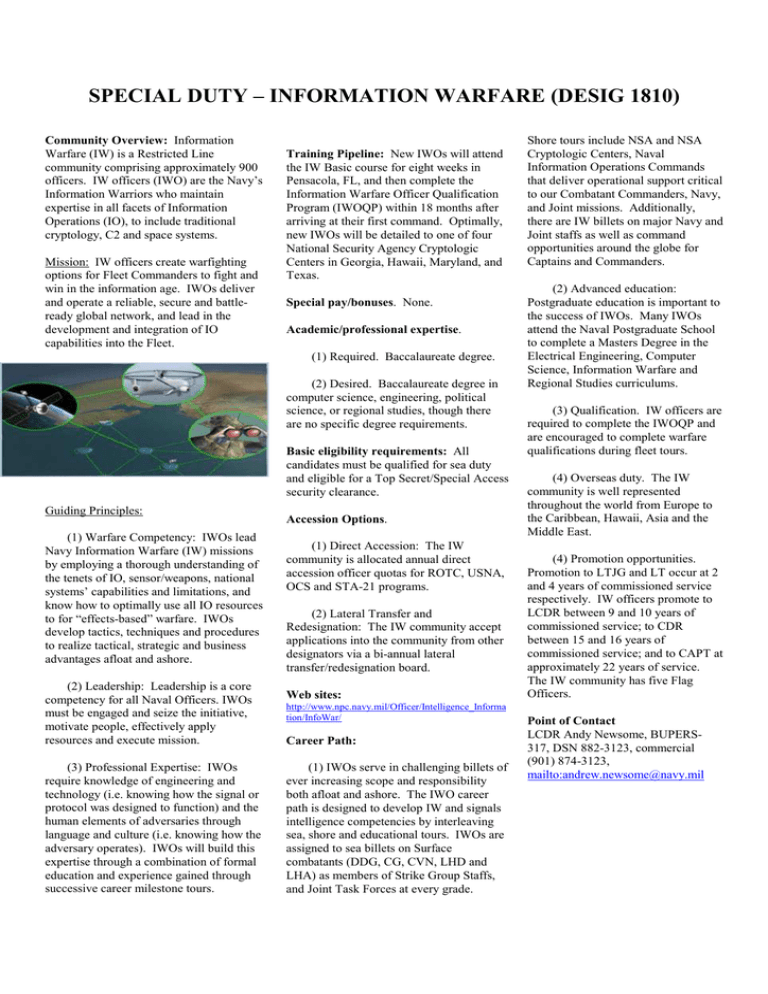
SPECIAL DUTY – INFORMATION WARFARE (DESIG 1810) Community Overview: Information Warfare (IW) is a Restricted Line community comprising approximately 900 officers. IW officers (IWO) are the Navy’s Information Warriors who maintain expertise in all facets of Information Operations (IO), to include traditional cryptology, C2 and space systems. Mission: IW officers create warfighting options for Fleet Commanders to fight and win in the information age. IWOs deliver and operate a reliable, secure and battleready global network, and lead in the development and integration of IO capabilities into the Fleet. Training Pipeline: New IWOs will attend the IW Basic course for eight weeks in Pensacola, FL, and then complete the Information Warfare Officer Qualification Program (IWOQP) within 18 months after arriving at their first command. Optimally, new IWOs will be detailed to one of four National Security Agency Cryptologic Centers in Georgia, Hawaii, Maryland, and Texas. Special pay/bonuses. None. Academic/professional expertise. (1) Required. Baccalaureate degree. (2) Desired. Baccalaureate degree in computer science, engineering, political science, or regional studies, though there are no specific degree requirements. Basic eligibility requirements: All candidates must be qualified for sea duty and eligible for a Top Secret/Special Access security clearance. Guiding Principles: (1) Warfare Competency: IWOs lead Navy Information Warfare (IW) missions by employing a thorough understanding of the tenets of IO, sensor/weapons, national systems’ capabilities and limitations, and know how to optimally use all IO resources to for “effects-based” warfare. IWOs develop tactics, techniques and procedures to realize tactical, strategic and business advantages afloat and ashore. Accession Options. (1) Direct Accession: The IW community is allocated annual direct accession officer quotas for ROTC, USNA, OCS and STA-21 programs. (2) Lateral Transfer and Redesignation: The IW community accept applications into the community from other designators via a bi-annual lateral transfer/redesignation board. (2) Leadership: Leadership is a core competency for all Naval Officers. IWOs must be engaged and seize the initiative, motivate people, effectively apply resources and execute mission. http://www.npc.navy.mil/Officer/Intelligence_Informa tion/InfoWar/ (3) Professional Expertise: IWOs require knowledge of engineering and technology (i.e. knowing how the signal or protocol was designed to function) and the human elements of adversaries through language and culture (i.e. knowing how the adversary operates). IWOs will build this expertise through a combination of formal education and experience gained through successive career milestone tours. (1) IWOs serve in challenging billets of ever increasing scope and responsibility both afloat and ashore. The IWO career path is designed to develop IW and signals intelligence competencies by interleaving sea, shore and educational tours. IWOs are assigned to sea billets on Surface combatants (DDG, CG, CVN, LHD and LHA) as members of Strike Group Staffs, and Joint Task Forces at every grade. Web sites: Career Path: Shore tours include NSA and NSA Cryptologic Centers, Naval Information Operations Commands that deliver operational support critical to our Combatant Commanders, Navy, and Joint missions. Additionally, there are IW billets on major Navy and Joint staffs as well as command opportunities around the globe for Captains and Commanders. (2) Advanced education: Postgraduate education is important to the success of IWOs. Many IWOs attend the Naval Postgraduate School to complete a Masters Degree in the Electrical Engineering, Computer Science, Information Warfare and Regional Studies curriculums. (3) Qualification. IW officers are required to complete the IWOQP and are encouraged to complete warfare qualifications during fleet tours. (4) Overseas duty. The IW community is well represented throughout the world from Europe to the Caribbean, Hawaii, Asia and the Middle East. (4) Promotion opportunities. Promotion to LTJG and LT occur at 2 and 4 years of commissioned service respectively. IW officers promote to LCDR between 9 and 10 years of commissioned service; to CDR between 15 and 16 years of commissioned service; and to CAPT at approximately 22 years of service. The IW community has five Flag Officers. Point of Contact LCDR Andy Newsome, BUPERS317, DSN 882-3123, commercial (901) 874-3123, mailto:andrew.newsome@navy.mil
